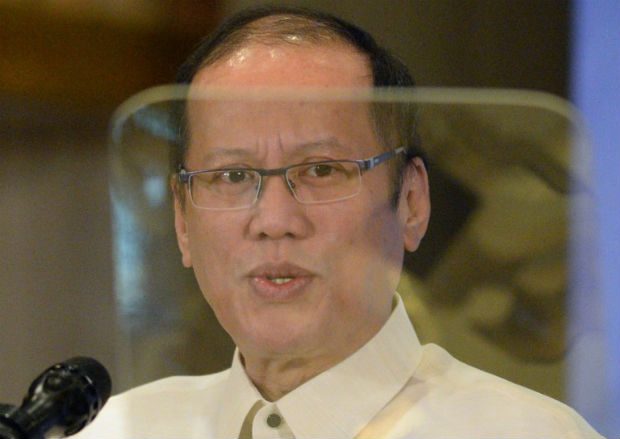‘No ransom authorized for release of 2 Germans’

President Benigno Aquino speaks during the annual Foreign Correspondents Association of the Philippines (Focap) forum in Manila on Wednesday, Oct. 22, 2014. Aquino on Wednesday told Focap he had not authorized the payment of ransom to secure the release of two Germans kidnapped by the Abu Sayyaf as he evaded further questions on the issue. AFP PHOTO/TED ALJIBE
MANILA, Philippines–President Aquino on Wednesday said he had not authorized the payment of ransom to secure the release of two Germans kidnapped by the Abu Sayyaf as he evaded further questions on the issue.
“I can assure you that. I didn’t authorize anything from the Office of the President,” he said at a forum sponsored by the Foreign Correspondents Association of the Philippines (Focap).
Given the government’s “no-ransom” policy, the President said that “nothing came from the Office of the President.”
He did not directly answer a question on whether or not he was aware if ransom had been paid for the release of Stefan Viktor Okonek and Henrike Dielen last Friday. The Abu Sayyaf claimed receiving a P250-million cash ransom.
“You should ask the people who negotiated rather than me. And in this particular case, the Germans were the ones who were negotiating,” he simply replied.
Article continues after this advertisementHe said his priority was to secure the safety of the hostages, who the bandits had threatened to behead last Friday if the ransom was not be paid.
Article continues after this advertisementDespite the release of the two Germans, the Abu Sayyaf is still holding at least 11 hostages. Aquino claimed they “are reasonably in good health” based on “intelligence reports that I get.”
“I cannot go into too many details on exactly where they are, but they are being monitored,” he said.
“But can I just state for the record that we are in constant touch with the respective embassies and governments through the embassies of these hostages to ensure that there is cooperation in the attempt to secure their recovery and their safety.”
The President also vowed “very significant accomplishments” in the government offensive against the Abu Sayyaf.
“I don’t want to say by next week. I don’t give deadlines. But you will see very significant accomplishments as far as suppressing the Abu Sayyaf is concerned,” he said.
The President spoke of a “second phase,” one that would address the “root causes” of the group’s banditry in southern Philippines, such as the signing of the peace agreement with the Moro Islamic Liberation Front earlier this year.
“At the end of the day, you hit [the problem] from two fronts: There is a military component but the reverse is also the developmental efforts that they have to go into,” he said, estimating Abu Sayyaf’s strength at around 400 members in Sulu.